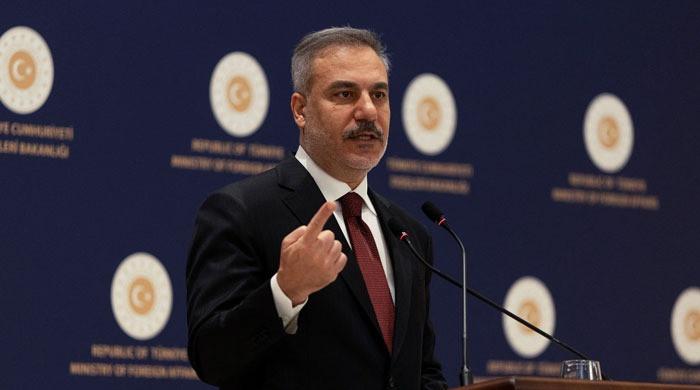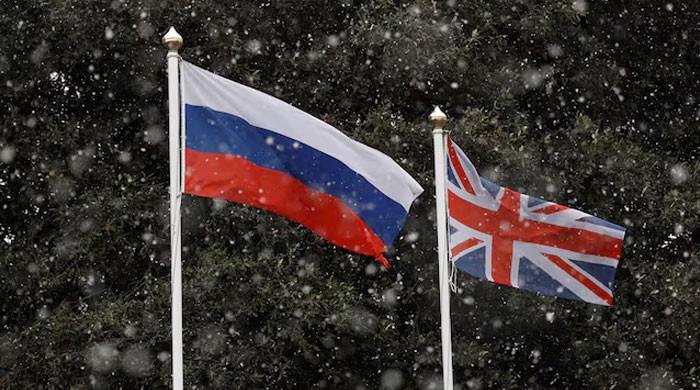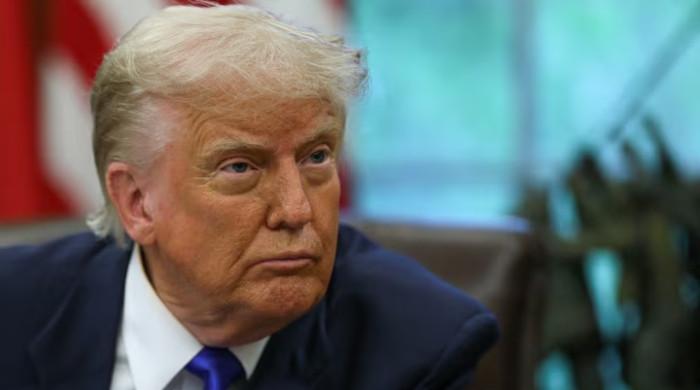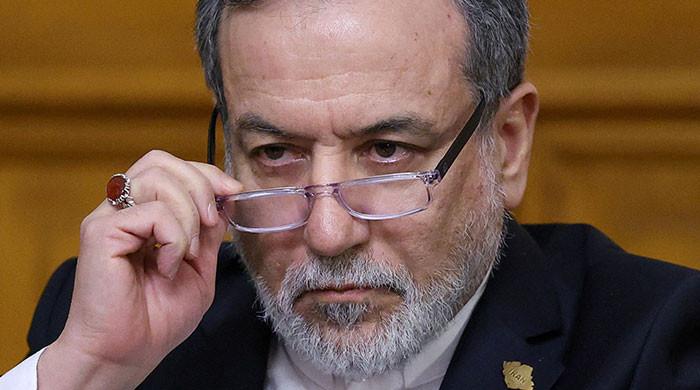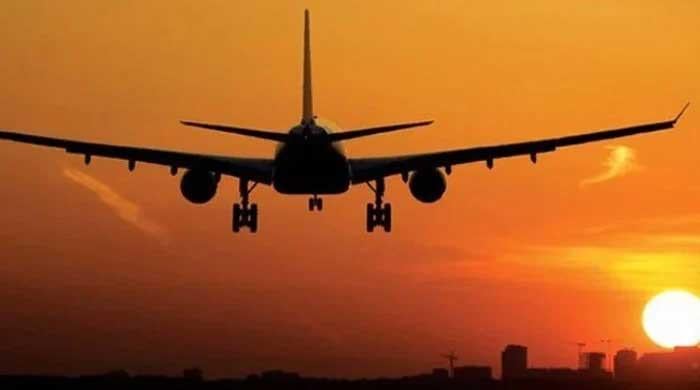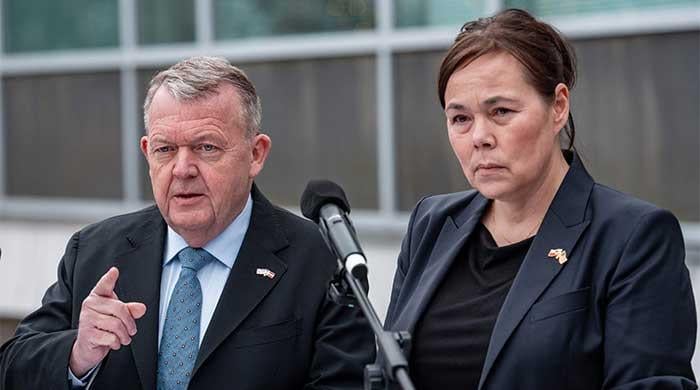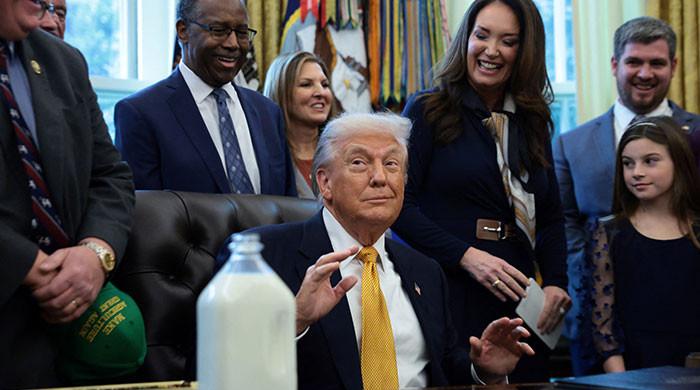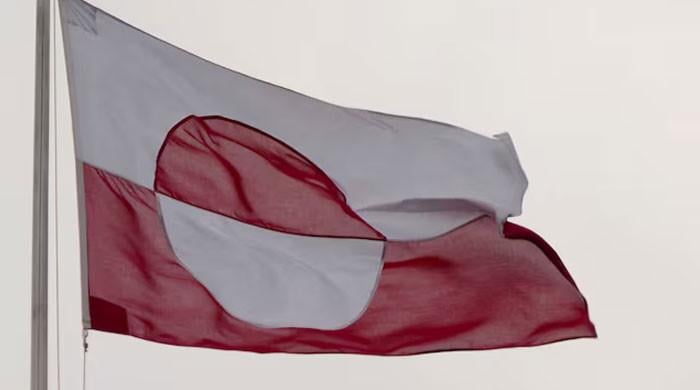Iran's president to address nation as unrest spreads
Iranian President Ebrahim Raisi to touch on 'most important domestic, foreign issues'
September 28, 2022
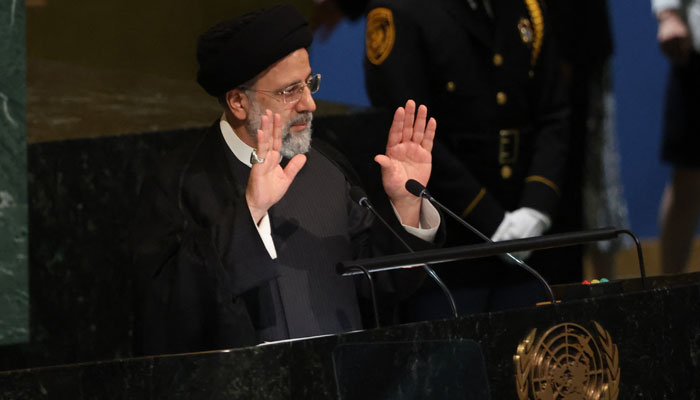
- Raisi to touch on 'most important domestic, foreign issues'
- Growing death toll as protests spread to over 80 cities
- Death of woman in morality police custody kindled protests
DUBAI: Iranian President Ebrahim Raisi planned a television address to the nation on Wednesday amid a tide of anti-government unrest in Iran after the death of a young woman in police custody.
Despite a growing death toll and crackdown by security forces, social media videos showed Iranians persisting with protests, often calling for the end of the clerical establishment's more than four decades in power.
Still, a collapse of the Islamic Republic seems remote in the near term since its leaders are determined not to show weakness they believe sealed the fate of the US-backed Shah in 1979, a senior Iranian official told Reuters.
Raisi, who last week said the protests over Mahsa Amini's death were unacceptable "acts of chaos", will speak to the nation later in the day, the semi-official ISNA news agency reported.
"The president will talk about the most important domestic and foreign issues facing the country in his live TV interview tonight," ISNA said, without elaborating.
Angry demonstrations have spread to over 80 cities nationwide since the Sept 13 death of 22-year-old Mahsa Amini, after she was arrested for "unsuitable attire" by the morality police who enforce the Islamic Republic's strict dress code.
Amini, who was from the northwestern Kurdish city of Saqez, died in hospital after falling into a coma, sparking the first big show of dissent on Iran's streets since protests against a rise in gasoline prices in 2019.
"We will fight, we will die, we will take Iran back," chanted protesters in Tehran's Ekbatan neighbourhood, a video posted on Twitter showed.
Growing support
State media said 41 people, including members of the police and a pro-government militia, have died during the protests. Iranian human rights groups have reported a higher toll.
Dozens of Iranian celebrities, soccer players and artists — inside and outside the country — have backed the demonstrations while activists have called for a nationwide strike.
Iran's elite Revolutionary Guards said on Wednesday they fired missiles and drones at militant targets in the Kurdish region of neighbouring northern Iraq, where an official said nine people were killed.
Iranian authorities have accused armed Iranian Kurdish dissidents of igniting the unrest, particularly in the northwest where most of Iran's over 10 million Kurds live.
Videos posted on activist Twitter account 1500tasvir, with 145,000 followers, showed students at Shiraz Medical School protesting against Amini's death and demanded the release of students arrested since the eruption of protests.
The UN High Commissioner for Human Rights has called on Iran's clerical rulers to "fully respect the rights to freedom of opinion, expression, peaceful assembly and association".
UN human rights office spokesperson Ravina Shamdasani said on Tuesday reports indicated "hundreds have also been arrested, including human rights defenders, lawyers, civil society activists and at least 18 journalists".
Amini's death has drawn widespread international condemnation while Iran has blamed, in addition to Kurdish dissidents, "thugs" linked to "foreign enemies" for the unrest.
Tehran has accused the United States and some European countries of using the unrest to try to destabilise the Islamic Republic.




